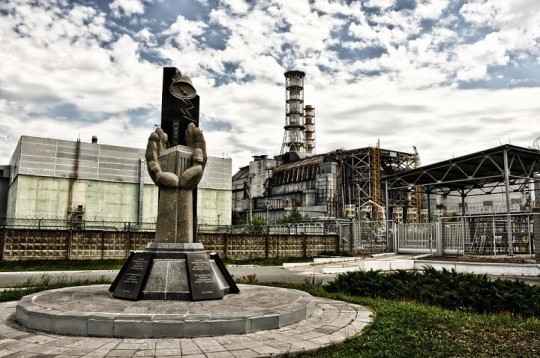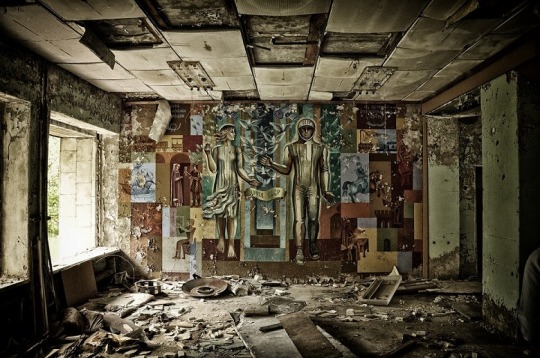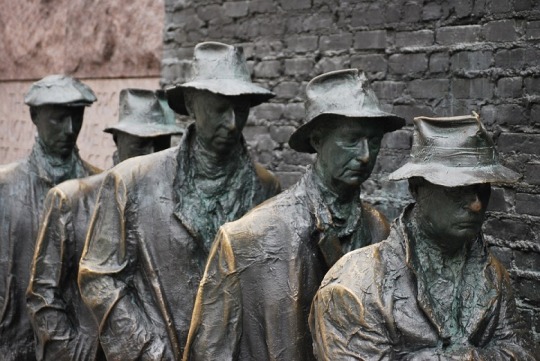#also fukushima and chernobyl where not at all accidents of the same magnitude
Text
you know what really grinds my gears??? the misconceptions abt nuclear power and radioactivity
#no radiation does not make you glow or grow extra limbs ❤️#its sooo much worse#also nuclear power is relatively the safest way of producing energy based on the ratio of energy created:people who died on site#even with chernobyl! even with fukushima!#also fukushima and chernobyl where not at all accidents of the same magnitude#fukushima is nothing compared to chernobyl#the radiation in fukushima actually officially killed 0 (zero) people#it was all tsunami/earthquake#so yea vote nuclear or the fundings gonna get cut and safety measures will suffer bc ofc they will and thats when accidents happen#rbmk reactors DO explode ❤️#okay correction . radiation is related to glowing but only in like reactors#an irradiated person will never glow#thank you for coming to my ted talk#can you tell i have a special interest
3 notes
·
View notes
Text
It's time to play chess (why the current situation in the post-Soviet economy resembles the Chernobyl accident)
December 2018
People who caught up with the spring events of 1986 in the Soviet Union remember very well the strange atmosphere of the April days, when the Voice of America radio station had long told in detail about the explosion at the Chernobyl Nuclear Power Plant, and the official Soviet media were either stubbornly silent about what had happened, or had being informing about it very poorly, either they didn`t even know nothing or even didn`t want to hear, hastily making up pages of May Day issues with reports about the next labor victories in the fields, poultry and fishing farms, foundry and assembly plants, design bureaus and research institutes.
There was tension in the air, generated by uncertainty, a vague awareness of the great magnitude of the impending consequences of the accident and, it seems, the universal significance of what had happened somewhere in the depths of the Kiev region. After some time, the Soviet press and television nevertheless began, as if reluctantly, to squeeze out in small portions messages telling that the Chernobyl Nuclear Power Plant was being tested, and during that test, the planned reactor operation was disrupted, which led to the release of radiation.

Since then, more than three decades have passed, during which widely reported by the press major accidents at the Fukushima and at the Sayano-Shushenskaya Dam took place. However, even against their background, the perception of the Chernobyl catastrophe, which was nothing else than a "dirty" nuclear explosion, the most tangible consequence of which was radioactive contamination, did not change in any way either in strength or in the degree of drama.
It was the conspiracy of silence imposed immediately after the accident upon Soviet newspapers and television that made events at the Chernobyl NPP which were well understood even to the schoolchildren studying the civil defense terrible and mysterious, thus elevating them to the level of myth and legend, which are passed on from person to person but do not reach the consciousness of the inhabitant through the channels of official propaganda. Perhaps that is why folklore was filled with stories about mutants and scary monsters who inhabited the Chernobyl Exclusion Zone, so gullible and avid on sensations adventurers rushed towards the station to meet and consider all these "mutants".

Something similar can be observed today in the sphere of economics in the former USSR: over a quarter of a century after the collapse of the Soviet Union, its former economy generally turned into ruins, but this fact is hardly covered in any way by either television or newspapers. True, they now have a most powerful competitor in the form of the Internet, which has long been filled with information about how unemployment and poverty are spreading in some former Soviet republics. It is worth watching several channels in YouTube (Новости СВЕРХДЕРЖАВЫ, БАРМАЛЕЙКА, Суть времени, Sasha Sotnik , Александр Балу, Д’ Робот Скрепоносный Бузотёр, Волхонский ЛАЙВ) or read the channels in Yandex Zen (Тезис, Uchaev blog, Буркина Фасо ЖЖ, Ермаков Игорь, Общество и политика, Академика, PRO РОССИЮ), as the picture of reality begins to coincide with this very reality.
Shabby housing, deceived shareholders in shared construction, low pensions and salaries, the inability to find work in a speciality or any kind of work at all, the need to save on food and clothing, the huge debt load of the broad masses of the population, high prices for utilities that eat up the lion`s share of pensions and wages, the need to work 10-14 hours a day is what the residents of once-prosperous or non-distressed cities and regions today say about in their blogs and comments.

But this is also not a complete list of social problems brought by the current economic era, which can be called "post-privatization devastation". Recently there were reports that in 2019 in Russia a mortgage crisis could begin, which would lead to a massive eviction of debtors from unpaid apartments and the further placement of their former housing for sale. In this regard, it would not be superfluous to recall that one of the reasons for the sensational global financial crisis of 2007-2008 was the fact that recipients of American housing mortgage loans from the subprime category began to make overdue loan payments and defaults, which ultimately forced them to leave houses not bought from banks.
That same mortgage crisis of a decade ago led to the ruin of a number of companies, including the Bear Sterns and Lehman Brothers. As a result, the American authorities had to develop the Emergency Economic Stabilization Act of 2008, also called the Paulson Plan, which provided for the allocation of loans to banks in the amount of seven hundred billion dollars and a number of other health measures.

It is important to take into account that these troubles have fallen on an economically stable America, which, due to its financial status, has considerable freedom of action for dangerous monetary experiments. But where the housing mortgage crisis in Russia, which has long been imposed by various kinds of sanctions, will lead to, so far it remains only to guess.
However, it is already possible to draw the simplest conclusion that, for bank balance sheets, mass defaults on mortgages, figuratively speaking, will not be a positive factor. Accordingly, for those debtors forced to urgently take out the property and furniture from unpaid apartments, the troubles of finding an apartment for rent will not be a means of improving living conditions. Banks will begin to feel the shortage of money, and their bankrupt customers will be faced with a shortage of square meters and grounds for confidence in the future. In fact, the simplified system of approving mortgage loans laid the same time bomb under the economy of the Russian Federation, which the US financial institutions laid out for the US economy on the eve of 2007, handing out mortgage loans left and right.

These phenomena make it possible to call a considerable part of the former Soviet social and cultural space as a territory of an emergency economic situation, which is characterized by the absence of many social institutions that were common in the Soviet Union. There is no former mass distribution of apartments from the housing funds of enterprises, as there are not many of those enterprises still exist. There is no former large-scale agricultural production, as there are not many villages on the basis of which it functioned.
There is also no modern free health care, an ideology of economic development and scientific progress. The system of higher education is in many ways fragments of the Soviet higher education, which almost do not teach and do not give students the profession in demand, while deeply immersed in formalism, useless paperwork and creating visibility of activity. This is not at all the goal that was drawn in the minds of people who wanted to leave in the past the Soviet ineffective socialist economy.

Like the Chernobyl Nuclear Power Plant, created to give light and warmth, but ultimately pushed off the rails the well-established life of many people, the territory of economic emergency appeared as a result of good intentions to do away with the administrative-command system and entrust the care of the further development of the economy to the invisible hand of the market. In order to return life on this territory to normal, it is necessary to develop its Paulson Plan on emergency economic stabilization.

The struggle of two approaches to managing economy, leading to its revival and decline, can be thus called a struggle of emergency economic stabilization with an emergency economic situation, that is EES against EES (sounds like "chess" in Russian), which, given the English word "chess", can be considered one of the tensest chess games of the near future. Judging by the number of recent rallies against pension reform, it has already struck an hour to start this fight, and the opening combinations have already been played.
First posted on Media collection “Driving Idea“ at http://www.drivingidea.ru/WOTM/WOTM-5.html
#situation#Soviet#economy#chernobyl#accident#1986#vocieofamerica#nuclear#power#plant#Kiev#catastrophe#radioactive#mutants#youtube#yandexzen#housing#shareholders#construction#pensions#salaries#work#crisis#gloval#financial#Paulson#plan#emergency#lehman brothers#bear sterns
0 notes